
What Readers Have To Say About Their Marriages
We asked, and you told us.
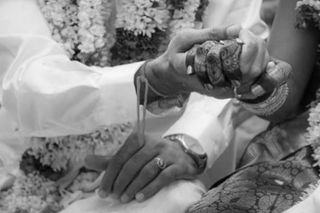
Recently, we asked our readers to tell us about their marriages. We were hoping to encourage married Indians to share things they didn’t feel comfortable telling others, like what irks them most about their spouse and whether they feel they’ve married the right person. And share they did: 131 readers took our survey to tell us some of their best-kept marital secrets.
The majority of the people who responded to our survey were women, ringing in at 93.1% of the respondents. The range of time people had been married was immense: Some responders had been married for 35 years, while the shortest marriage was only 12 days long. Four years was the most common length of time to be married by a long shot: 19 respondents had been married that long. Most of the participants (58.8%) had kids.
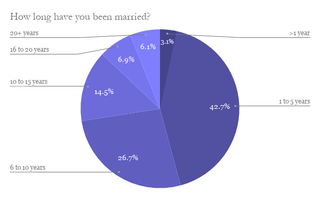
Modern tradition
About 46.6% of our readers had arranged marriages, regardless of how long ago they got married, confirming that the tradition is very much alive. Those who had arranged marriages were not necessarily less romantic about their texting: Of the eight participants whose last SMS from their spouse said some version of “I love you,” three were arranged marriages.
Only 35.9% of participants lived in joint families, and many of these stated that the joint family living arrangement or other family-related problems were the main source of fighting with their spouse. Not all of those who lived in joint families had arranged marriages, but the likelihood of having an arranged marriage was higher, at 55.3%.
Perhaps one of the most intriguing respondents was the woman who’d had an arranged marriage, lived in a joint family, and whose most common fight with her spouse was about “polygamy” — although if she could change one thing about him, it would be his “drinking and smoking.” She did not believe she married the right person.
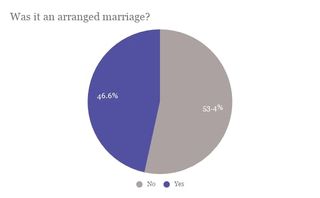
Communication
How you communicate with your partner can say a lot about your relationship, and certainly the last text our readers received from their spouses spoke volumes. The kissy face emoji was common, as was some version of “looking hot” (presumably in response to pictures sent by the participant). A surprising majority of last texts were about when the spouse left the office for the day.
Some texts were jokey, like “Madam your pickup is waiting down,” followed by a winky face. Some participants evidently found certain jokes less amusing, like the woman who said she’d last received “a sexist joke on marriage” from her husband.
Plenty of SMSes were about routine or menial matters, like the woman who messaged her husband “Get more groceries as you head back home” and the man who messaged his wife to let her know he was “Coming home for lunch.” But some of these indicated a hidden tenderness, such as: “Do you want me to bring you a glass of cold water?”
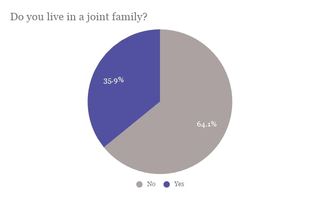
Love
The majority of our readers said they had fallen deeper in love after marriage: 53 of the survey participants told us they loved their spouses more than they did when they were married. Thirty said they loved their spouses the same amount, and 17 were sure they loved their spouses less than when they were married.
It was not so clear cut for many participants, however. Many responded that they weren’t sure or didn’t know how their love had changed between now and when they were first married. Others said that it depended on the day or that it wasn’t constant — “as much, sometimes less,” or “more, but sometimes it feels less.”
Plenty responded saying they still loved their spouse as much or more than they did on the day of their marriage, but that it was a “different kind” of love. One woman said she loved her husband in “different ways,” but she worried that it may be less. One woman who’d been married 30 years said she loved her spouse more, but “now it is more of care and respect than physical love.”
We received a few unique responses. “Ah but the audacity of quantifying love,” one woman responded. “It is by nature, infinite. More or less means less.”
“I don’t think I ever loved loved him,” wrote another. Her marriage had been arranged, and she had a problem with his drinking and smoking. However, she wasn’t certain that she’d married the wrong person.
Whether or not they loved their spouses more, as much, or less, a vast majority of participants believed they’d found the correct person. To our question about whether they’d married the right person, 94 people responded “yes” in some form.
“No other person would be fit enough to marry a guy like me. She completes me in every aspect,” wrote one man.
“Yes, because no one is perfect and this is the best probably,” another wrote. Others had similar pragmatism. “Yes, don’t know any different,” one person wrote with a winky face.
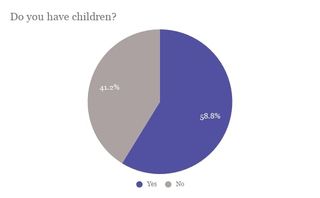
Conflict
The spouse’s family was the biggest cause of contention among married couples. Another big issue for couples was an unfair division of domestic labor or child care between husband and wife. For some, it was health issues or drinking. Many women said they struggled with their husband’s patriarchal or traditional mindset.
Infidelity, cheating, lying, and other people in the spouse’s life were often another issue to come up. Of the women who said they would fight with their spouse about lying or cheating, all of them believed they had married the wrong person.
Tolstoy famously wrote that while unhappy families are unhappy in its own ways, happy families are all alike. But our survey goes to show that every marriage, whether happy, unhappy, undecided, or somewhere in between, is unique.
The readers who took our survey are proof that Indian marriage is not the untouchable monolith that once was. Those in ‘traditional’ arranged marriages or joint families can have evolving, romantic marriages. And those who loved their spouses less now could still believe they married the right person, just as someone who loved their spouse more could think they married the wrong person.
In the coming weeks, we’ll share more from the survey, delve deeper into the commonalities and speculate on the differences to paint, with your help, a full portrait of modern Indian marriage.
Urvija Banerji is the Features Editor at The Swaddle, and has previously written for Rolling Stone India and Atlas Obscura. When she's not writing, she can be found in her kitchen, painting, cooking, picking fights online, and consuming large amounts of coffee (often concurrently).
Related


Is Probiotic‑Supplemented Breast Milk the Future?
